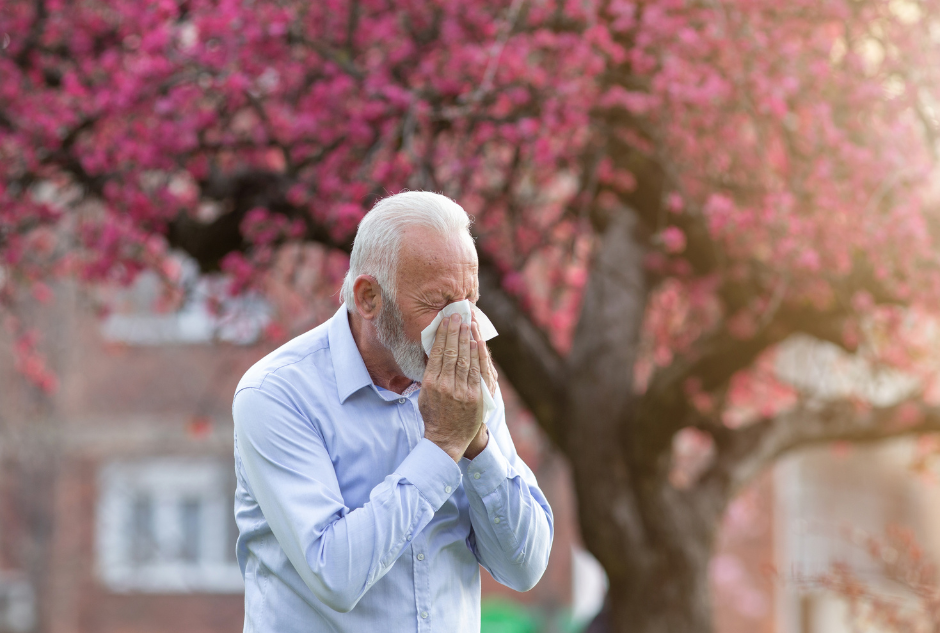The CDC’s National Health Survey reports that around one-quarter of American adults suffer from seasonal allergies. Pollen allergy is one of the leading causes of seasonal allergies, particularly in the spring (March-April). Unfortunately, such allergies increase the incidence of respiratory issues among the elderly. Coping with pollen allergies can be challenging, but seniors can enjoy the season without discomfort with the right strategies.
Here are five practical tips to help older adults manage pollen allergies effectively.
Minimize Exposure to Pollen
As pollen is the primary cause of pollen allergy, minimizing its exposure can reduce the chances of pollen allergy. Daily pollen forecasts allow seniors to plan outdoor activities when pollen levels are lower. Similarly, going out early in the morning or late in the evening can also decrease pollen exposure.
Allergy-Safe Environment at Home
Air purifiers with HEPA filters in bedrooms and living spaces can reduce pollen content in the home environment. We should also regularly clean and vacuum these areas to ensure a pollen-free climate, providing a safe retreat from outdoor triggers.
Preventive clothing
We should wear long-sleeved clothing and sunglasses outdoors, particularly during high pollen seasons. Such clothing helps minimize direct contact with pollen on the skin and the eyes, reducing the incidence of allergic reactions. Similarly, a hat can also prevent pollen from settling in the hair.
Anti-allergic medications
Several over-the-counter (OTC) anti-allergic medications, such as Fexofenadine, Cetirizine, Chlorpheniramine, and Loratadine, are now available without a prescription. These medications usually come in combination with pseudoephedrine, as mentioned below.
- Cetirizine-pseudoephedrine (Zyrtec-D)
- Chlorpheniramine-pseudoephedrine (SudoGest)
- Fexofenadine-pseudoephedrine (Allegra-D)
- Loratadine-pseudoephedrine (Claritin-D)
Anti-allergic medications decrease the amount of a chemical called histamine, which is responsible for pollen allergy. However, it is recommended that you consult your doctor if you are taking other medications.
Practice Good Personal Hygiene
Above all, we should practice good personal hygiene as increased exposure to dirt, dust, and outdoor allergens exacerbates the allergy symptoms. To keep good personal hygiene, we should shower regularly, change our clothing after spending time outdoors, and avoid long nails.
How to identify pollen allergy?
Pollen allergy usually presents with variable symptoms of nasal congestion, runny nose, itchy eyes, increased sinus pressure, facial pain, coughing, sneezing, wheezing, and scratchy throat.
Can it be dangerous?
Though rare, pollen allergy can lead to life-threatening complications, including anaphylaxis, characterized by swollen lips, body rash, lightheadedness, mouth/throat swelling, swallowing difficulties, and breathing problems. If you are diagnosed with pollen allergy and experience these signs, you should immediately seek medical help.
Take home
Managing pollen allergies in older adults requires a proactive approach to minimize pollen exposure and promote well-being during allergy seasons. Monitoring pollen levels, preventive clothing, and ensuring a pollen-free home climate can help reduce the incidence of pollen allergy in the elderly. Anti-allergic medications, such as ZyrTEC, Allerga-D, or Claritin-D, can also decrease pollen allergy symptoms. However, we should seek professional help in case of severe allergy reactions.

